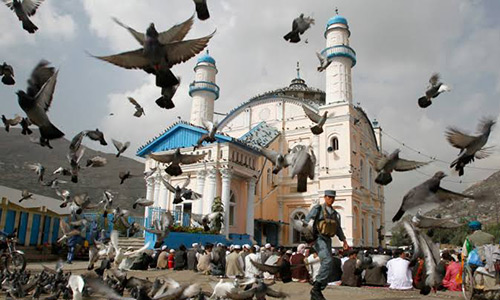The growing oppositions between traditionalists and modernists is one of the several factors which cause socio-cultural gaps and divisions among technocrat and religious group of people in third world countries, especially in Afghanistan. The religious groups of society blame technocrats as westernized people who have no deep understanding about culture and spiritual life. On the other hand, the modernist people called traditionalists as resilient and ignorant factors that play a hindering role versus modernization and development. For example, in recent day, many of young generation seriously reacted against extremist expressions of a religious scholar in Herat, a western province of the country. On the contrary, there are also some extremist modernists such Asad Buda who repeatedly insults the faith and values of millions of Muslim people. Buda and his followers harshly believe that religious teachings are the main cause of backwardness in the country.
Meanwhile, there are a third group of people who are more flexible and moderate regarding traditional and modernism issues in the country. Based on this approach, nothing is absolutely black and white unless it crosses from the filter and standard of rationality. Neither the prescription of Buda can solve the problem of the country and nor the dogmatic of approach of Mowali Ansari as both are extremists thinking the world is either black or white. Afghanistan, as a multi-cultural and multi-ethnic country, needs to more flexible and pluralistic approach. We must differentiate between superstitious phenomena and pure traditional experiences and teachings. Similarly, we need to be respectful against modern human achievement, modern values and more tolerant against one and other. If we are not able to listen to one and other, and if we have no tolerance to listen each and other, it will have very destructive consequences. Based on a moderate approach, not only we should have tolerance against one and other but also need to launch peaceful inter-culture dialogue so as to understand and recognize one and other. We need to have an open society because there are always some valuable things in every culture to be learnt. Fortunately, the new constitution of Afghanistan has a very moderate approach; from one hand it has recognized the international human rights and values and on the other hand it pays respect to all culture and religion. That’s why; it is called one of the best constitutions in the region. The third approach is also endorsed by scientific studies. According to scientific studies, all traditions and cultures do not necessarily hinder from social and political development. Based on scientific studies which carried out to explain the relations between tradition and development in China, Japan, Honkung, India and Iran, the tradition can play positive role in social and political development. Likewise, the Protestantism has played very positive role in renaissance and industrialization of European countries in 16 and 17 century. In a very pessimistic view, if we cannot accept its positive role, we cannot prove its negative impact in the mentioned countries. Therefore, nothing is fully black or white unless it is proved by scientific experience and studies. According to Bella, who is a very famous modernization thinker, religion can play positive role in modernization. After carrying out some researches on Japanese religion, he concluded that TokoKawa religion alike Protestantism has had positive impact on Japanese modernization and development. His finding shows three features in Japanese religion which played positive role in Japan including: hardworking, frugality and legality of profit. Moreover, according to Japanese religion, the workers should do their job in best possible quality regardless of receiving less or more salary. These religious teachings are slowly changed to a national culture in Japan and eventually led to the today’s Japan development. In Japanese culture, laziness is a big shame while working hard, being thrifty and showing proficiency considered as great pride to his family.
The second scholar who carried out scientific research on role of tradition on social and economic development is Wang. According to his findings, family ownership and patriarchic culture in China has had positive impact on family companies in China. Though patriarchic culture delay the political awareness, it prevent from social uprising. The feelings of ownership inside family companies in china strengthen trust, hard work, human motives and loyalty to their own companies. The similar idea is true in Hong Kong and it is considered as third world financial center in the world. Hong Kong has alone exported more goods than India.the Development thinkers such as Bella and Wang believe that the Hong Kong, Japaniese and Chinese development come from new Confucius, patriotism, religious loyalty and kinship.
Third scientific scholar is Bano Azizi who carried out research on role of tradition on Iranian revolution and development. Based on his ideas, the Iranian religion and culture is very similar to Protestantism. It is flexible, rational, motivated and more open comparing to other similar tradition and culture in Islamic countries. The religious thinkers have played important role in providing a moderate interpretation from Islam during Islamic revolution. According to religious thinkers in Iran, the world need to regular dialogue among different culture so as to learn from the experience and achievement of one and other. Recognizing rationality as religious source makes it more flexible and open to the world experience and culture.
Based on social and economic development in China, Hong Kong, Japan, Iran and India, reaching to modernization and development does not necessarily require escaping from tradition. Instead we need to localize the modern and achievement on the basis of pluralistic approach. So, no extremist movement will works whether in form of religion or in form of modernization in the country.
Home » Opinion » The Positive Role of Moderate Tradition in Social and Economic Development
The Positive Role of Moderate Tradition in Social and Economic Development
| Mohammad Zahir Akbari

